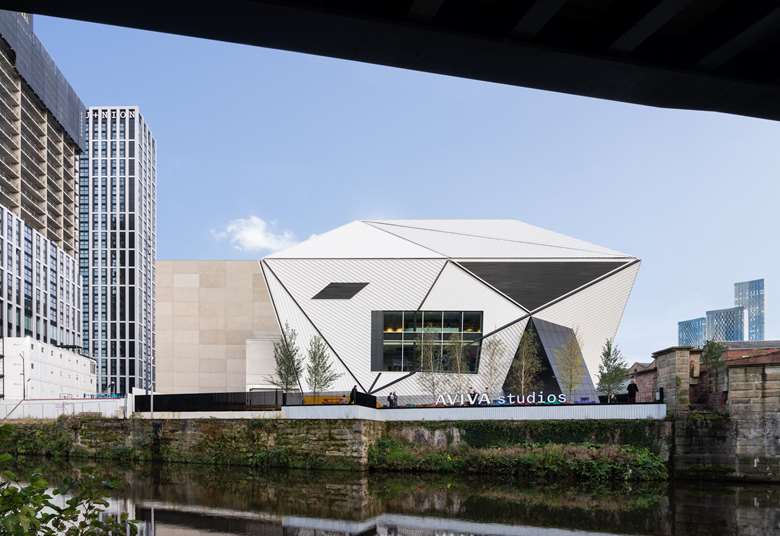British Arts Festivals Association meets in Manchester
Simon Mundy
Wednesday, November 29, 2023
Simon Mundy recaps his experience at this years BAFA conference, reporting that, while the resources on offer for festivals continue to shrink, the spread and variety of festivals across Britain remains healthy

Manchester’s new Aviva Studios venue, built on the site of the old Granada TV complex, was this month the backdrop to the British Arts Festivals Association’s (BAFA) annual gathering. Over 70 participants representing all types of arts festivals came together on 22 and 23 November, some with general and community profiles, others with multilayers of festivals within their structures (like Cheltenham, Harrogate and Edinburgh), others highly specialised by genre, target audience or location. There were also representatives from the equivalent association in France, and the European Festivals Association, of which BAFA is a national umbrella member.
The themes for discussion throughout the event reflected the issues which across the last decade, have occupied the thoughts of all the festivals representatives. As well as tackling the challenges of dealing with simultaneous cuts in public spending at the same time as changing political priorities loom large, topics of discussion also covered the continuing need to attract back audiences after the hiatus of the pandemic as well as changes in audiences’ habits and tastes. Cost-of-living crises mean that ticket prices are under pressure as audiences limit their spending and, even if some high-income segments of festivals' supporters remain committed and loyal, the need to help others to attend is a challenge for all.
"Asking performers not just to drop in for a single appearance is an increasingly attractive contribution to a festival's sustainability"
Sustainability is a topic that inevitably turns up on every arts conference agenda at the moment. The topic can encompass the sustainability of the festival itself in hard times, as referred to above, or artistic sustainability in the face of changes in education priorities and official criteria. Most of the focus at present, though, is on how festivals respond to climate change. There is an awareness that programmes can carry the message through music, theatre and poetry, and festivals are responding in the briefs they give to composers, writers and choreographers as well as in inclusive community projects.
Of equal relevance is the behaviour of a festival itself: how it deals with disposable waste, energy consumption, food and other supply sourcing, the options given to audiences – shared travel schemes and other climate-friendly ways of getting to events; even the opportunity to contribute to clean-up and reforesting schemes via donations when booking. Asking performers not just to drop in for a single appearance is an increasingly attractive contribution. Apart from allowing reduced travel, it has the advantage of building a relationship with audiences over several days and giving programmers far greater opportunities to mix and match performers and invent encounters that cannot be found outside a festival contact.
"The tendency of arts councils to treat everything in the arts as three-year projects is disruptive"
A session on Re-Mapping Music threw up the discrepancies in expectations of music's place in festivals. It exposed the tensions between public funding bodies and artistic priorities, as well as those who felt excluded – whether because traditional formats seemed alien or, from the opposite point of view, because those same traditional formats seem to be at threat from interventionist forces coming to them with little understanding. Public funding is under pressure, not just in amount but in the purposes for which it is given, with criteria being used as tools of public control.
Session discussion also encompassed festivals' reactions to political pressure from all parties to broaden the base of the audience, even at the expense of artistic integrity. Parts of the nation's demographic, as well as geographical regions, are no longer fashionable with politicians and the implementers of official policy. There was clear frustration at the way arts councils and local authorities are behaving: arts councils risk decreasing the security of arts organisations by changing their function and artistic policy; local authorities by either cutting support or by transferring enormous sums from programme funding to vanity capital projects. Too often local authorities show they are happier contributing to buildings than to artistic activity. The tendency of arts councils to treat everything in the arts as three-year projects is disruptive and plays havoc with the lives, families and careers of professionals who are already under strain.
For all that, it was admitted that the spread and variety of festivals across Britain is healthy, though the resources that they have to work with are often only a small proportion of that which their fellows in other parts of Europe can expect. There is a strong willingness to weather the storms, whether actual, political or financial. There is also genuine excitement at the new formats, genres and audiences being discovered. While there are huge professional challenges, the satisfaction after a successful festival, however small or big, makes those involved convinced that there are few better areas of work.